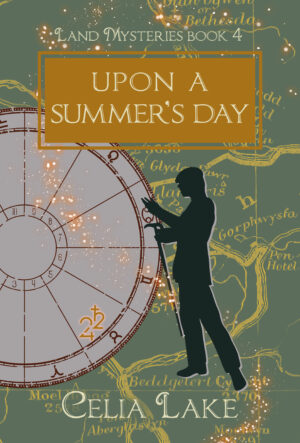Welcome to a series of posts about each book (find the others in the ‘ideas to books’ category.) Authors start writing from very different points.
I start my books with characters, usually. I want to get to know my characters, and figure out their stories, their connections. I want them to be in complex interconnected worlds, and I want to get a sense of what that means for them.
The Mysterious Charms books are what is sometimes called a loosely connected series. You can read them in any order, but they have related characters. (And, I should note that the publication order is not the chronological order of the series.) As I write, I think about which secondary characters I’d like to explore in future books. Because the books are tightly focused in terms of point of view and character goals on the main characters, we see only slices of the much larger world they live in. Each new book is a chance for me to explore a different slice of that world.
As I write this blog post, I’m recently finished book 6 in the series, On The Bias. It’s the story of Thomas Benton (Lord Geoffrey Carillon’s valet, seen briefly in earlier books), and Mistress Castalia Jones, a dressmaker. I’ve been describing this one to people as “Valet and dressmaker foil plots.” I’m in the process of learning more about both of them, and to focus on people who aren’t well-off, or from well-off families.
But how does that play out?
I start with a character or two (now that I’m well into the series, I have a list of about eight future possible books, usually starting from a secondary character in a previous book I want to know more about). I’ve got a particular interest in writing characters who are dealing with things that affect how they interact with the world, whether that’s the after-effects of the Great War, surviving tuberculosis, a stigmatised but also useful magical ability, or something else.
(Why? I’ve got my own host of chronic health complexities and I’ve also got friends with a wide range of chronic stuff. I want to write books where we aren’t sappy inspirations, but get to live our lives, do interesting things, and find love. Also, there were a lot of people dealing with these things in the 1920s, and I don’t want to leave it out of the story. That’s lazy worldbuilding and bad history.)
Then I figure out what they’re interested in, what kinds of puzzles they might want to solve or things they’re trying to do with their lives. Sometimes they want to keep advancing professionally (and do something more interesting than traffic duty), like Kate in Wards for the Roses. Sometimes they’re trying to figure out how to get a bit of freedom from their family (Ferry, in Outcrossing). Maybe they’re going along living their lives when an interesting puzzle drops in their lap. (Ibis, in Magician’s Hoard).
And from there it’s a matter of outlining the basics of what’s happening, sitting down to write regularly, and seeing how the story unfolds.

